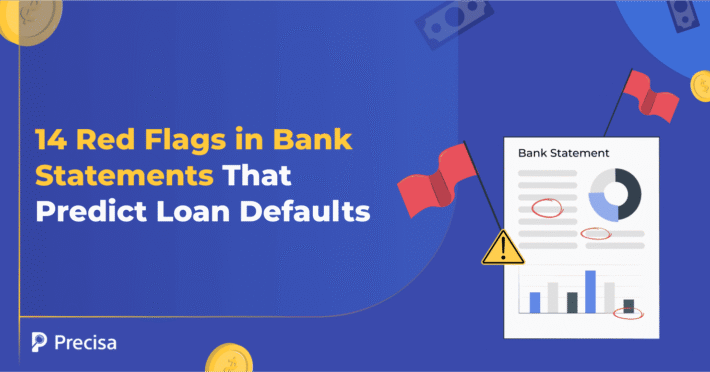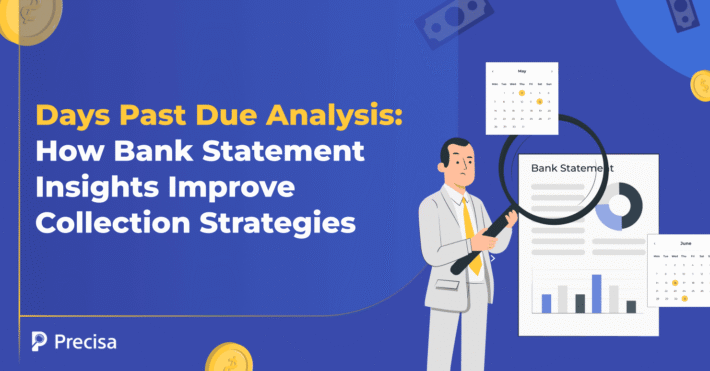Business Intelligence in Banking Industry: Why Are Banks Banking on BI?

Banks have a plethora of data waiting to be organised. We might think since the banks have so much data, they are ready to use Business Intelligence to make the best of it, but it is just the tip of the iceberg.
The problem with the available data is that there is only a large quantity of data, but the quality matters a lot. The best use can only be seen if the data fed in the Business Intelligence tool is of good quality. Only then can it be organised and easily visualised.
So, in a nutshell, it is vital to clean and categorise data. This can be achieved if we have complete knowledge of how Business Intelligence works and its benefits in the Banking Industry. Unfortunately, many financial institutions are yet to unlock the full potential of Business Intelligence in banking.
What is Business Intelligence in Banking, and Why Should Banks Use Them?
Business Intelligence in banking is the use of analytics software or Software as a Service (SaaS) to organise the large quantity of data available in a visual format that is interactive and customisable according to the specific needs of the financial institution. They help in running the operations seamlessly by identifying, analysing, and resolving issues in real-time.
If we broadly categorise some of the functions, they are:
- Categorising
- Data Mining
- Management
- Benchmarking
- Analysis
2.5 quintillion bytes of data is being generated every day. By 2025, the amount of data generated is projected to reach 463 exabytes globally (source: SeedScientific). The business analytics tools analyse the data, develop queries to check against the standardised data, and create reports in the dashboard. These reports are interactive, intuitive, and even customisable.
If the financial institutions put these massive quantities of data into work, they can gain insights into optimising their operations and gaining a competitive advantage.
BI offers the banks and other financial institutions a flexible and straightforward approach to optimise their processes and make better decisions. Business Intelligence brings tremendous benefits, including proven, measurable ROI: The average 5 years ROI on BI is 112% (Source: Sedco).
How Business Intelligence can be used in Banks
The sheer volume of data necessitates it to be automated as manually going through them is not feasible. In recent years, the advancement of technology has made it possible, and banks have started using Business Intelligence to automate many such tasks. As a result, BI offers the banks better ways to manage assets, risks and campaigns.
Business Intelligence does not only generate statistics and reports, it also offers live dashboards, performance analysis, and benchmarking features. Here are some features offered by BI:
- Real-time monitoring: Get live data of the functioning and management of all your bank branches. Check average queue wait time and other performance tracking features for a better customer experience.
- Counter Usage: Get feedback on how all of your counters and tellers are being utilised in real-time
- Appointment Tracking: Get real-time tracking of all the appointments booked, most recently checked-in, and more.
These features on the live dashboard clubbed with advanced statistics and data analysis can help banking executives optimise and improve the operations and make the customer experience much better.
How Business Intelligence can Help Banks Gain a Competitive Advantage
Listed below are some points which will help banks improve performance with the help of advanced features of Business Intelligence.
1. Handling Data with Ease
Adapting to the evolving customer needs is an integral part of any financial institution. BI analyses the market trends and converts the data into actionable insights for better data handling. This includes information like customer preferences, behaviour and demands.
The main features include:
- Customer Service Analysis: All the suggestions, requests, and demands of the customers are monitored and the time required to resolve them. This helps optimise the customer service experience in the future.
- Resource Allocation: Data is collected from the peak hour transactions to analyse the pattern. This helps increase the efficiency to track performance and optimise it better for the future.
- Mobile and Internet Banking: Analysing the daily online transaction through the mobile apps or net banking, if any problems are arising, the time taken to resolve them, and other performance analysis reports directly on the dashboard.
2. Performance Enhancement
Business Intelligence helps create performance reports by tracking the output of the employees and various departments by analysing net output volume, service delivery time, error rates, and customer satisfaction. This information helps businesses optimise their business processes by getting specific feedback on the errors.
BI helps analyse the market, track business functions, and administer performance analysis to improve products and services.
- Financial Data Analysis: BI helps track expenses, financial predictions and forecasting, and budget planning to optimise the costs.
- Sales Analysis: Get information about potential clients, growing demands of the customers, and track credit pipelines with the analytical tools of BI.
- Data Mining: Data analysts and engineers can monitor and store the data in a secured way and organise them for future use.
3. Customer Retention
Business Intelligence also helps pinpoint the loopholes due to which customers switch to the competitors. Customer demands can be easily tracked, and businesses can improve their operations and products accordingly to improve customer retention.
The customer service can be considerably improved by:
- Customer segmentation. It helps businesses cater to their specific needs and launch campaigns accordingly.
- Optimising sales funnel by understanding the customer demands and optimising the products for customer satisfaction.
4. Risk Management
The unpredictable volatility in the finance sector is a major concern for many. BI applications and advanced features help minimise risk by preventing any fraudulent activities. BI makes it easy to track, analyse and detect risk through efficient data analysis of the operational and financial procedures.
Some essentials for risk management include:
- Conducting regular risk assessments
- Tracking potential risky incidents and actions
- Managing data for investigative purposes
- Having safety training and competency assessments.
The needs of all financial institutions vary, and some BI tools satisfy the needs better than others. So select a tool that caters to your specific needs and has all the necessary features for optimising the business processes and driving customer satisfaction.
Precisa is a bank statement analyser tool making use of Business Intelligence, helping it become a trusted name amongst financial institutions. It helps lending institutions make informed and data-driven decisions in cash-flow based lending and other types of wealth management. Try out Precisa with a 14 days free trial today!




